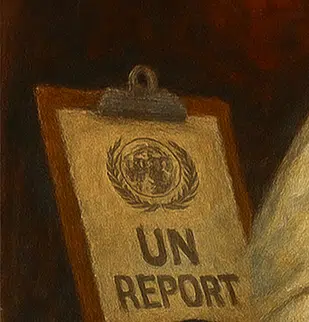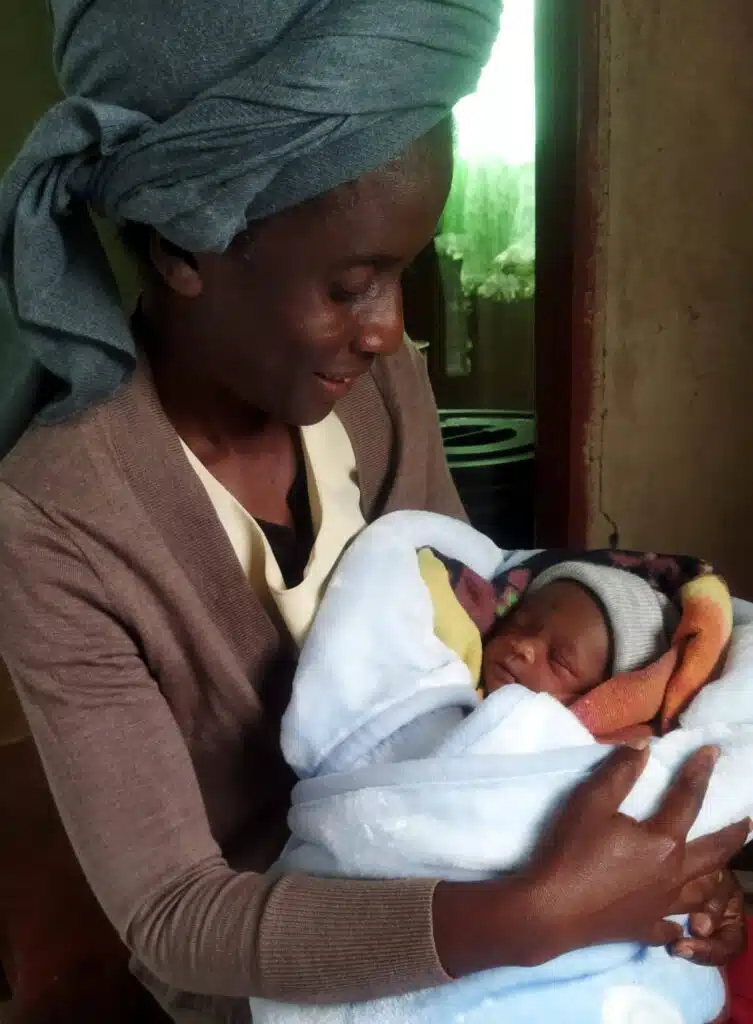“The practice of surrogacy is characterized by exploitation and violence against women and children, including girls. It reinforces patriarchal norms by commodifying and objectifying women’s bodies and exposing surrogate mothers and children to serious human rights violations.”
― Report by the UN Special Rapporteur on Violence Against Women and Girls
A little over a year and a half ago, Pope Francis became the subject of international headlines when he strongly condemned [1] surrogacy, and called for a worldwide ban on the practice.
“I deem deplorable the practice of so-called surrogate motherhood,” our former Holy Father said in remarks delivered to the Vatican diplomatic corps. He went on to label surrogacy “a grave violation of the dignity of the woman and the child, based on the exploitation of situations of the mother’s material needs.”
“A child is always a gift and never the basis of a commercial contract,” Pope Francis said. “Consequently, I express my hope for an effort by the international community to prohibit this practice universally.”
At the time, the Holy Father’s remarks were met with outrage. NPR, for example, immediately reached out to a prominent advocate of surrogacy, who called [5] the Pope’s remarks “disrespectful.”
“I just think that it’s so brave for a parent to trust somebody else to carry their baby,” Sunshine Hanson told NRP. “It’s a really special and unique relationship that I don’t think anybody who hasn’t been through it can really fathom.”
UN Report Calls for Total Ban on Surrogacy
Imagine my surprise, then, when a very different authority this week also called for a global ban on surrogacy.
Reem Alsalem, the United Nation’s Special Rapporteur on violence against women and girls, recently submitted a scathing report [6] on the practice of surrogacy. In surprisingly strong language, the report documents how surrogacy exploits and harms every single person involved, including the surrogate mother, egg donors, the couple that hires the surrogate (the “commissioning couple”), and the children created in this way.

Alsalem notes that, in preparing the report, she received 120 submissions from stakeholders. She also consulted with numerous experts on the issue, including surrogacy agencies, medical experts, and women who have been involved in one way or another with surrogacy. In other words, she did her homework.
And what she found was so disturbing, that her report likens surrogacy to slavery, says it contributes to human trafficking, accuses surrogacy agencies of deliberately exploiting vulnerable women, and argues that the only path forward is a total ban.
Commodifying Women’s Bodies for Profit
In her report Alsalem notes that while pro-surrogacy advocates tend to emphasize the idea that surrogate mothers are performing an altruistic service to help infertile couples, in reality there is almost always a financial motive that perverts the entire enterprise.
“[M]ost surrogate mothers come from lower-income backgrounds and have less social status compared with the commissioning parents,” notes the report. “Many lack access to effective legal remedies or advocacy mechanisms.”
In other words, women who become surrogates tend to be impoverished and highly exploitable. The result is that many surrogates suffer economic, psychological, and physical violence: for example, when they are not paid when they suffer a miscarriage, or are cynically manipulated by language indicating that surrogacy is about “love” for others.
In some of the most horrific cases, surrogate mothers have been forced to have their preborn children aborted, such as when the child they are carrying tests positive for abnormalities. In other cases, surrogates have been forced to abort when the child is perfectly healthy, or when the IVF procedure impregnates them with more than one child, or when the child turns out to be the “wrong” gender.
Punish Buyers, Protect Mothers
The report repeatedly expresses concern about the fact that the “commissioning couple” (i.e., the couple that is paying the surrogate), tend to be wealthy Westerners, whereas the surrogate mothers tend to be impoverished women from developing nations. This, says Alsalem, “risks reinforcing colonial and discriminatory patterns.”
Ultimately, surrogacy, by its very nature, places “monetary value on women’s capacity to bear and give birth to healthy children.” That is, it commodifies the bodies of women, a fact that is reflected in the dehumanizing language used by the surrogacy industry. Alsalem deplores the fact that the industry uses “disembodied terms such as ‘womb’, ‘a guesthouse’ and an ‘incubator developing their cells’” when speaking of surrogate mothers.
The report notes that, “The profit-oriented behaviour underpinning surrogacy service provision increases the risk of human trafficking at every stage of the process, including to other countries for forced reproductive labour.” In some cases, the report notes, this is completely indistinguishable from “slavery.”
Why Surrogacy Harms Children’s Rights and Wellbeing
However, it’s not just the surrogate mothers who are victimized by commercial surrogacy.
The children created in this way, “experience immediate separation from the woman who carried them and are transferred to the commissioning parents – a process that can be emotionally and developmentally significant,” notes the report. This immediate separation can increase the risks of developing an insecure attachment style, which is itself linked to a higher risk of developing mental disorders.
Statistics also show that children born of surrogacy, suffer from “lower mean gestational age at delivery, higher rates of preterm birth and higher rates of low birth weight,” and increased risk of birth defects.

Furthermore, the entire process overtly commodifies the child. “Commercial surrogacy, which accounts for the overwhelming majority of surrogacy cases globally,” says the report bluntly, “constitutes the sale of children, which is a crime.”
Interestingly, the UN report draws attention to the way surrogacy tends to perpetrate eugenic and overtly racist ideas. Often, especially in cases where the mother is infertile, surrogacy uses an egg that is taken from a woman who is paid for the egg. However, notes Alsalem, women who are young, white, Western, and well-educated can be paid up to 100 times more for their egg than other women.
Ban Surrogacy ‘In all Forms’
Alsalem minces no words in the conclusion to her report. States that are members of the United Nations, she says, should “take steps towards eradicating surrogacy in all its forms.”
Legislation, she said, should be modeled on the Nordic model for dealing with prostitution. Under this model, the buyers of surrogacy services should be penalized, concrete help should be provided to help surrogate mothers escape surrogacy, and the advertising of surrogacy services should be banned.
The report also recommends that member states create legislation that lists the birth mother as the legal mother of the child. If a transfer of parentage is to occur, then it should occur using the same legal framework as adoption: involving a detailed judicial process, in which the prospective parents are screened.
Furthermore, member states should prioritize the health and rights of the child and ensure that children born of surrogacy are not discriminated against in any way. And surrogacy agencies should be charged criminal, and have assets confiscated.
While some countries do already ban commercial surrogacy, this is not enough to protect vulnerable women. “Reportedly, migrant women are either specifically targeted for surrogacy or transferred to other countries for the purpose of impregnation and childbirth, often to circumvent legal frameworks,” notes Alsalem.
This is why the ban should be global, with every UN member state following the report’s recommendations. Without a global ban, there is the risk that women will continue to be victims of human trafficking, as profiteering agencies move them across borders into surrogacy-friendly nations.
Catholic Bioethics: Why Surrogacy and IVF Are Always Immoral
The UN report focuses (understandably) on the question of how surrogacy violates the rights and dignity of women and the children born using this method. This is something on which the report agrees fully with Catholic teaching.
However, the Catholic Church’s objections to surrogacy go much further, and are more fundamental. Practically everything about surrogacy (except for the child himself, who enjoys the same intrinsic dignity as any other human being) amounts to an ethical nightmare – violating the dignity of the human person, of women, of marriage, and of the children.
Surrogacy typically involves the use of assisted reproductive technologies (ARTs), such as in vitro fertilization (IVF). Through such methods human life is treated as something to be manipulated in a laboratory. The child becomes the sum of technological engineering rather than the fruit of marital love and its bond.
The Church teaches that every human embryo has the right to life and should be treated with the same dignity as a born person. This is why she expresses profound ethical concerns about technologies that violate human dignity, particularly when they involve the creation and destruction of embryos.
Catholic Doctrine Against Surrogacy
A child is not a product but is a gift from God. That child has the right to be born as the fruit of the marital love and commitment by his/her parents, to be nurtured in the womb of their own mother, to be birthed by their own mother, and raised by their parents. Any deliberate effort to wrench procreation out of this context, and to reduce it to a commercial – or even an ‘altruistic’ – transaction, thereby depriving children of one or both of their parents, is inherently debasing, and inevitably leads to all kinds of moral violations of human dignity.
In general, the Church upholds a fundamental principle when assessing the morality of various means (technologies) that attempt to assist the conjugal act to achieve its natural end of procreation. If a given medical intervention helps or assists the marital act to achieve pregnancy, it may be considered moral. However, if the intervention replaces, bypasses, or substitutes the conjugal act to engender human life, it is morally unacceptable.

Surrogacy and IVF are always immoral because they bypass the natural act of intercourse (i.e., the marriage act) in order to create human life. Moreover, the use of ARTs in surrogacy lead to the wanton destruction of embryos, on an industrial scale. For this reason, in his remarks to the diplomatic corps, Pope Francis connected the issue of surrogacy to the rise of a “culture of death.”
“At every moment of its existence, human life must be preserved and defended,” he said, “yet I note with regret, especially in the West, the continued spread of a culture of death, which in the name of a false compassion discards children, the elderly and the sick.”
Surrogacy Advocacy vs True Human Dignity
As the UN Report notes, surrogacy is often sold as a compassionate, loving practice, with the aim of helping infertile couples welcome a child.
However, as Bishop Robert Barron noted in comments [7] last year, reacting to the backlash against Pope Francis’s call for a ban on surrogacy, this amounts to a form of false compassion.
On the one hand, he said, we should not dismiss the deep pain of couples who are infertile, and who earnestly desire to become pregnant using natural means. The Church must “accompany” such couples, he stated.
But on the other hand, surrogacy simply cannot be justified. “[N]o matter how well-intentioned, surrogacy always does grave injustice to the child, any discarded embryos (who are our fellow human beings), the commodified birth mother, and the loving union of the spouses,” Bishop Barron noted.
While a desire to welcome children is a natural and admirable desire, there is no “right to have a child,” he said. Within the framework of surrogacy, “The child becomes an object for the fulfillment of one’s desires instead of a person to be cherished. In this way, the genuine right of the child to be conceived through the love of his or her parents is overlooked in favor of ‘the right to have a child by any means necessary.’”
Why Both UN and Church Oppose Surrogacy
Once again, as I have so often noted, the Church has proven to be way ahead of the times. On the issue of surrogacy, the Church was not fooled even for a moment. She has always recognized that any kind of surrogacy arrangement has the effect of reducing the surrogate to little more than an incubator, has commodified the child, and involved a hornet’s nest of ethical problems.
A 1987 document from the Congregation for the Doctrine of the Faith (i.e., Dicastery for the Doctrine of the Faith) condemned surrogacy as “contrary to the unity of marriage and to the dignity of the procreation of the human person” (Donum vitae [8], no. 2), and argued that it undermines the family.

“Surrogate motherhood represents an objective failure to meet the obligations of maternal love, of conjugal fidelity, and of responsible motherhood,” says the Vatican document. “[I]t offends the dignity and the right of the child to be conceived, carried in the womb, brought into the world and brought up by his own parents; it sets up, to the detriment of families, a division between the physical, psychological, and moral elements which constitute those families” (Donum vitae, no.3).
It is extremely encouraging to see a UN report so forthrightly acknowledging many of these problems and calling for a global ban. Let us hope that UN member states read the report carefully, and work towards implementing its recommendations.